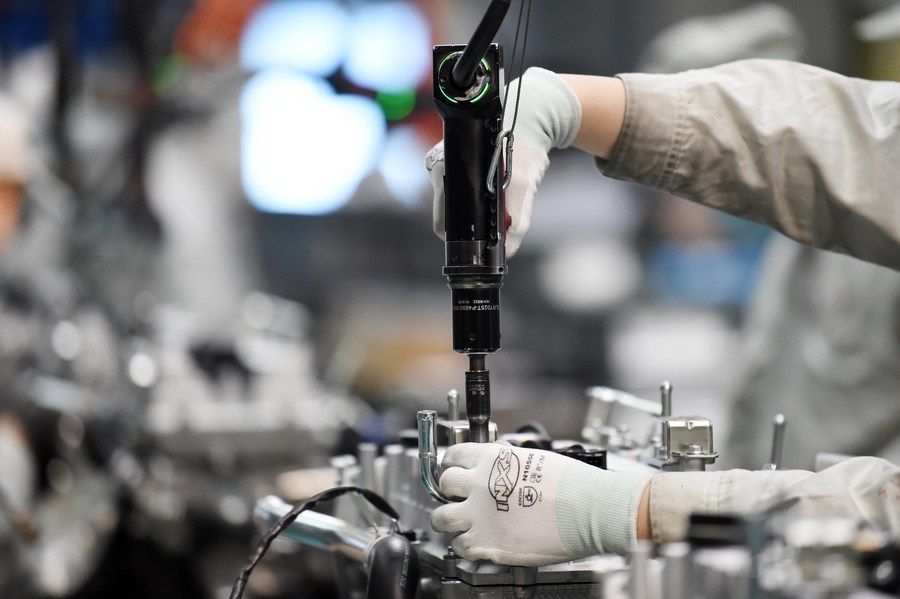China to balance tech R&D, cooperation
By MA SI | CHINA DAILY | Updated: 2021-03-02 07:13

China's efforts to pursue self-sufficiency in certain crucial technologies are to meet the nation's growing demand for cutting-edge products and services, and such efforts will contribute to the development of global information and communication technologies, the nation's top industry regulator said on Monday.
Xiao Yaqing, minister of industry and information technology, said at a news conference that China has the biggest demand for industrial and information technology products, and local consumers also have a surging demand for high-quality products.
"China has a population of 1.4 billion. Such a gigantic demand cannot be met simply by buying from others," Xiao said.
His comments came after the nation's industrial output, an important economic indicator, reached 31.31 trillion yuan ($4.84 trillion) last year, making it the world's largest manufacturing country for 11 consecutive years. But challenges exist as China relies on imports of key technologies such as components used in high-end robots.
Qiao Biao, deputy head of the China Center for Information Industry Development, a Beijing-based think tank, said the nation's plan to seek self-reliance in certain crucial technologies came amid bans on the export of such technologies to China.
"We have no choice but to work hard to crack hard nuts such as bottlenecks in technological advancement in semiconductors to meet our own demand," Qiao added.
"But such efforts do not mean an isolation strategy. Like the rest of the world, China aims to strike a balance between independence and international cooperation. For instance, we are also promoting global cooperation in a large number of technological areas," he said.
A case in point is the chip industry. After the United States government banned the export of certain high-end supercomputer chips to China in 2015, the nation intensified its drive to develop its own premium supercomputer processors, experts said.
But when it comes to broader categories of semiconductor products, the Chinese government is dedicated to deepening international cooperation such as welcoming US chip giant Qualcomm Inc to expand its business in China.
Tian Yulong, chief engineer and spokesman for the Ministry of Industry and Information Technology, said on Monday that the Chinese government will provide vigorous support to create a market-oriented and internationalized business environment for the semiconductor industry.
"It is necessary to strengthen global ties to jointly build the chip industry chain and to make it more healthy and sustainable. Such efforts will not only support the development of China's information society, but also facilitate the global information technology industry," Tian said.
China's efforts to seek indigenous innovation are expected to be a hot topic during the upcoming two sessions, the annual meetings of the nation's top legislative and political advisory bodies, and experts said these moves will help boost innovation capabilities globally.
Xu Zhifa, director of the industrial planning institute at the China Academy of Information and Communications Technology, a government research institute, said China, for instance, is a major production base for IT products in the world, and if Chinese companies' capabilities were improved, they could offer global consumers more state-of-the-art products at affordable prices.
"Meanwhile, as China advances higher-level opening-up, our innovation will have spillover effects, encouraging other countries and regions to come up with new ideas," Xu said.
Ren Zhengfei, founder of Huawei Technologies Co, emphasized the importance of international cooperation for innovation in an interview in February.
Despite the US government restricting Huawei's access to a string of crucial US technologies, Huawei remains committed to globalization. "We will continue partnering with foreign companies while honing our own technological capabilities," Ren said.
Tim Cook, CEO of US tech giant Apple, also highlighted cooperation in a recent interview with a Chinese blogger. Citing an old saying, Cook said, "I believe we're all in the same boat, and we can do amazing things together."
























